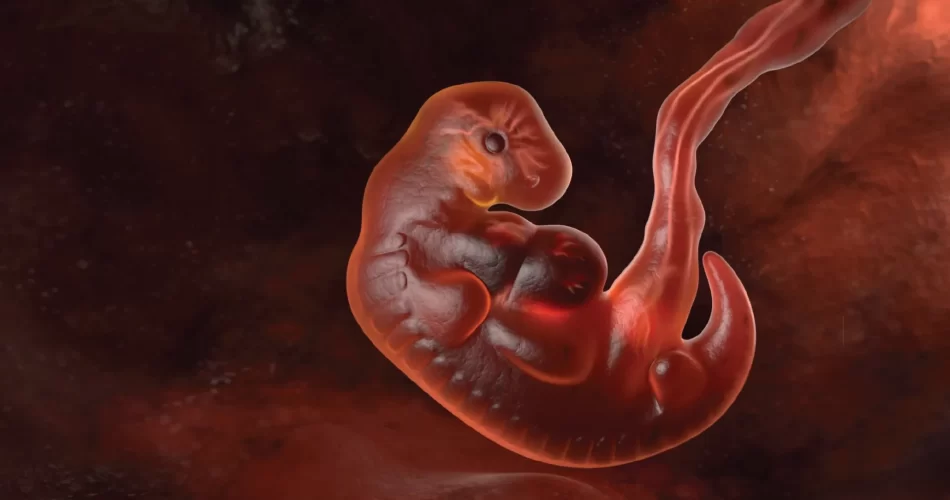Last Updated on 25 January 2024 by Vanessa Thoko
Implantation bleeding is a common occurrence in early pregnancy, signaling the attachment of a fertilized egg to the uterine lining.
After implantation bleeding, several things may happen:
- Implantation Process: Following implantation bleeding, the fertilized egg continues to embed itself deeper into the uterine lining. This process is crucial for the pregnancy to progress.
- Hormonal Changes: After implantation, the body starts producing human chorionic gonadotropin (hCG), a hormone that supports the pregnancy. Levels of progesterone, another hormone essential for maintaining pregnancy, also rise.
- Pregnancy Test Accuracy: Implantation bleeding often occurs around the time a woman expects her period. After it subsides, a woman may take a pregnancy test to confirm whether implantation was successful and pregnancy has occurred. Pregnancy tests typically detect hCG levels in the urine, which rise after implantation.
If you’re in South Africa and wondering about what happens after implantation bleeding, this post will guide you through the process.
Remember, while this information is valuable, consulting a healthcare professional is always advisable for personalized guidance.
Key Insights
- Implantation bleeding is common in early pregnancy.
- It occurs 6-12 days after conception when the embryo attaches to the uterine lining.
- hCG hormone is produced after implantation, maintaining the uterine lining and indicating pregnancy.
- Early pregnancy symptoms may include fatigue, breast tenderness, nausea, food aversions, mood swings, and frequent urination.
- Maintain health with a balanced diet, prenatal vitamins, exercise, sleep, and avoiding smoking/alcohol.
- Consult a healthcare professional for personalized guidance.
- The content is clear and concise.
- Include visuals for better engagement.
- Keep the content up-to-date with evolving medical guidelines and research.
Understanding Implantation Bleeding
Implantation bleeding occurs approximately 6-12 days after conception.
It’s often mistaken for a light period and may last a day or two.
This bleeding happens as the embryo breaks through the uterine lining to establish itself.
It’s usually nothing to be overly concerned about, but any worries should prompt a conversation with your doctor.
The Role of hCG
After implantation bleeding, your body begins producing a hormone called human chorionic gonadotropin (hCG).
This hormone serves two vital purposes:
- Uterine Lining Maintenance: It helps maintain the uterine lining, ensuring a secure environment for the developing embryo.
- Positive Pregnancy Test: hCG is what makes a home pregnancy test show a positive result. So, if you get that long-awaited positive test, you can attribute it to hCG!
Early Pregnancy Symptoms
As the pregnancy progresses, you may start experiencing a range of symptoms, such as:
- Fatigue: Feeling more tired than usual is common in early pregnancy.
- Breast Tenderness: Your breasts may become tender or sore.
- Nausea and Vomiting: Morning sickness, which can occur at any time of day, is a classic sign of early pregnancy.
- Food Aversions and Cravings: Your taste preferences might change, and you might develop strong food cravings or aversions.
- Mood Swings: Hormonal fluctuations can lead to mood swings, so don’t be surprised if you feel a bit emotional.
- Frequent Urination: An increased need to urinate is normal due to hormonal changes and pressure on the bladder.
Taking Care of Yourself
Maintaining your health is crucial during the early weeks of pregnancy.
Here are some tips:
- Healthy Diet: Consume a balanced diet rich in fruits, vegetables, and whole grains to provide essential nutrients to your growing baby.
- Prenatal Vitamins: Start taking prenatal vitamins as recommended by your healthcare provider to ensure you’re getting the necessary nutrients.
- Exercise: Engage in regular, moderate exercise to keep your body fit and support a healthy pregnancy.
- Adequate Sleep: Get enough rest to combat fatigue and promote overall well-being.
- Avoid Harmful Substances: Steer clear of smoking and alcohol, as these can harm your baby’s development.
Seek Professional Guidance
If you have any questions or concerns about your pregnancy, don’t hesitate to reach out to a healthcare professional.
Regular prenatal care is essential for monitoring your health and the well-being of your baby.
Remember, every pregnancy is unique.
While this post offers valuable insights into what happens after implantation bleeding, it’s essential to consult with a healthcare provider for personalized guidance and care tailored to your specific needs.










